Preventing and Managing Risk in Communities that are Prone to Disaster and Strengthening Their Resilience to Future Shocks
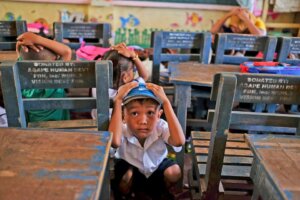

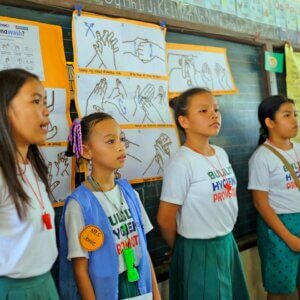
“It is never easy to live in tents. You’re not able to do the things you used to do, and it’s really a different feeling comparted to being in the comfort of your own home,” says Nora.
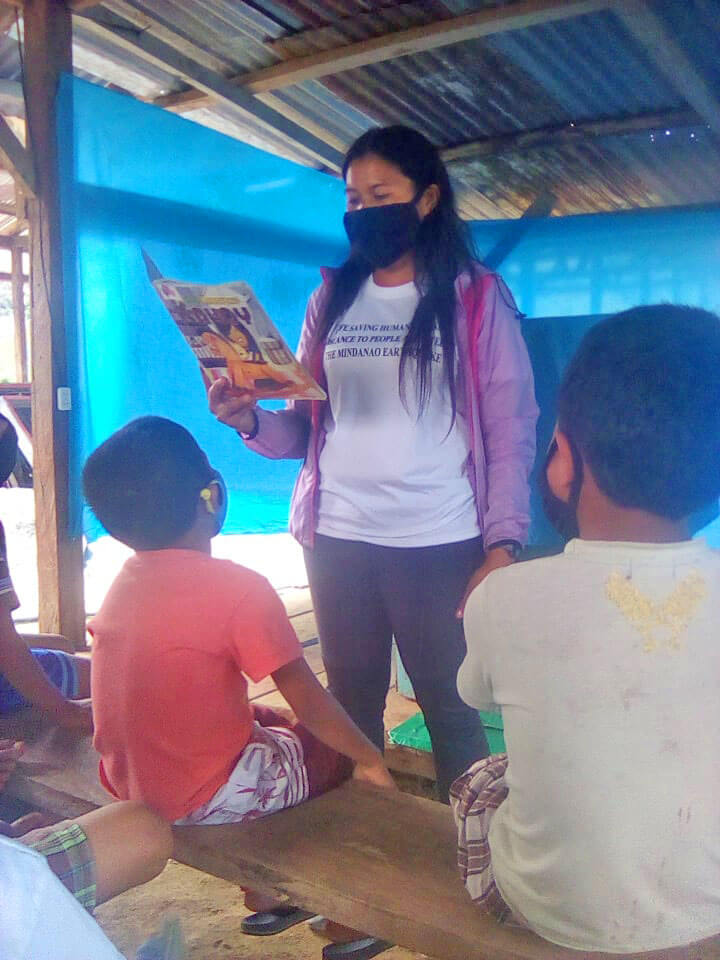
(Photo by Debbie Olivo for Action Against Hunger)
It wasn’t until Nora and her fellow volunteers applied mental health and psychosocial (MHPSS) care practices that insights in the community started becoming more positive. “The PSS sessions conducted in our respective assigned areas rekindled the social involvement between members of the community.” People appreciated the things they’ve learned from the sessions while at the same time enjoying the company of other parents and adults.
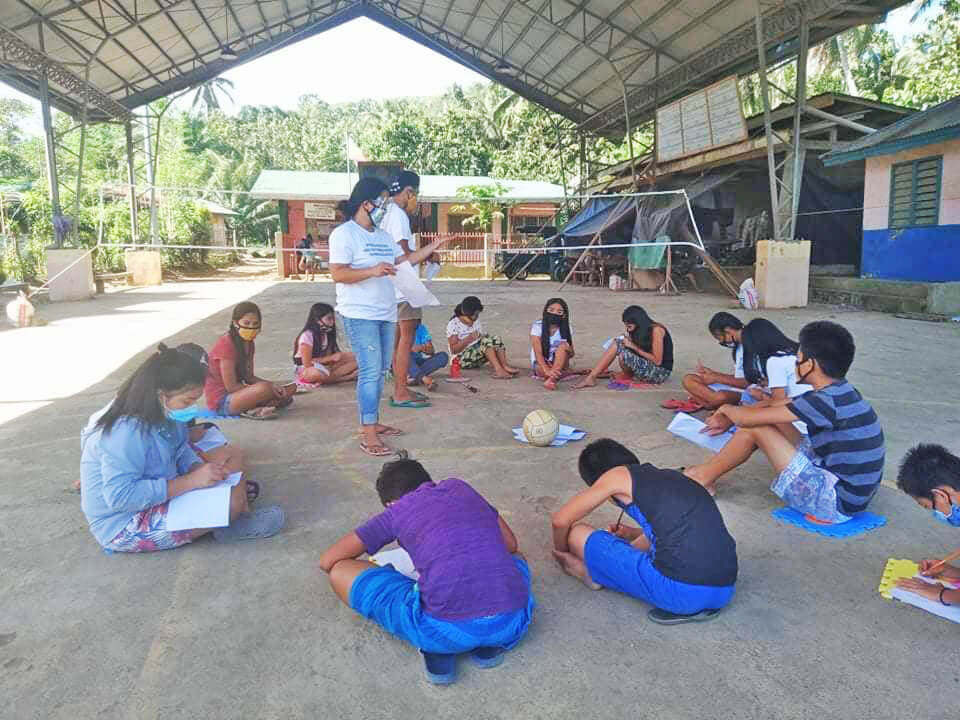
(Photo by Debbie Olivo for Action Against Hunger)
Together with our Earthquake Response Team, volunteers also provided the participants with education and information on nutrition & health.
Nora and her fellow volunteers were trained on a series of community-based PSS Sessions conducted last February by Action Against Hunger Philippines and funded by the European Union. The activity aimed to give equal importance to mental and social health among internally displaced persons (IDPs).
Life-saving Humanitarian Assistance to People Affected by the Mindanao Earthquake is funded by the European Union, and implemented by Action Against Hunger Philippines, CARE Philippines, and ACCORD Incorporated.
Written by Debbie Olivo.
In celebration of 𝗚𝗹𝗼𝗯𝗮𝗹 𝗛𝗮𝗻𝗱 𝗪𝗮𝘀𝗵𝗶𝗻𝗴 day on October 15, our teams presented their commitments to promote #CleanHandsforAll, spreading awareness on the importance of handwashing with soap to prevent diseases like COVID-19, and save lives. 💙💧🧼
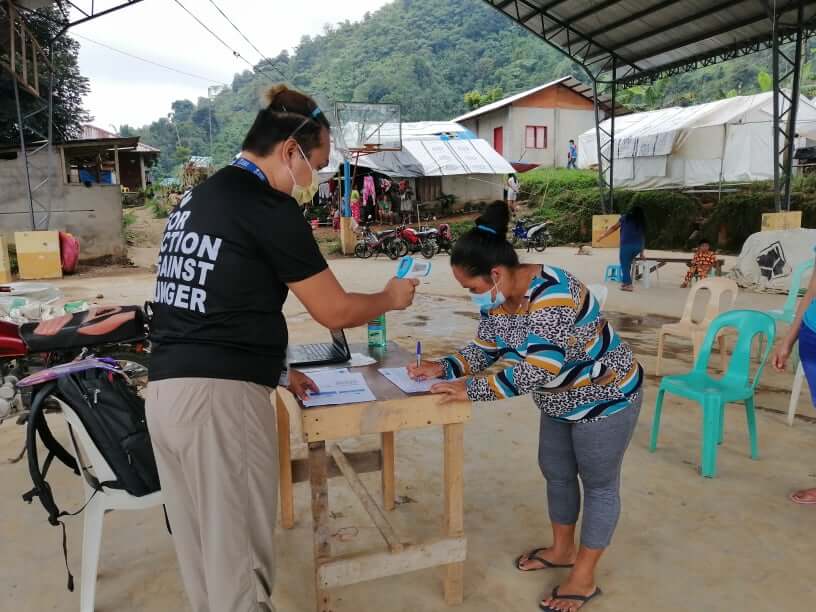
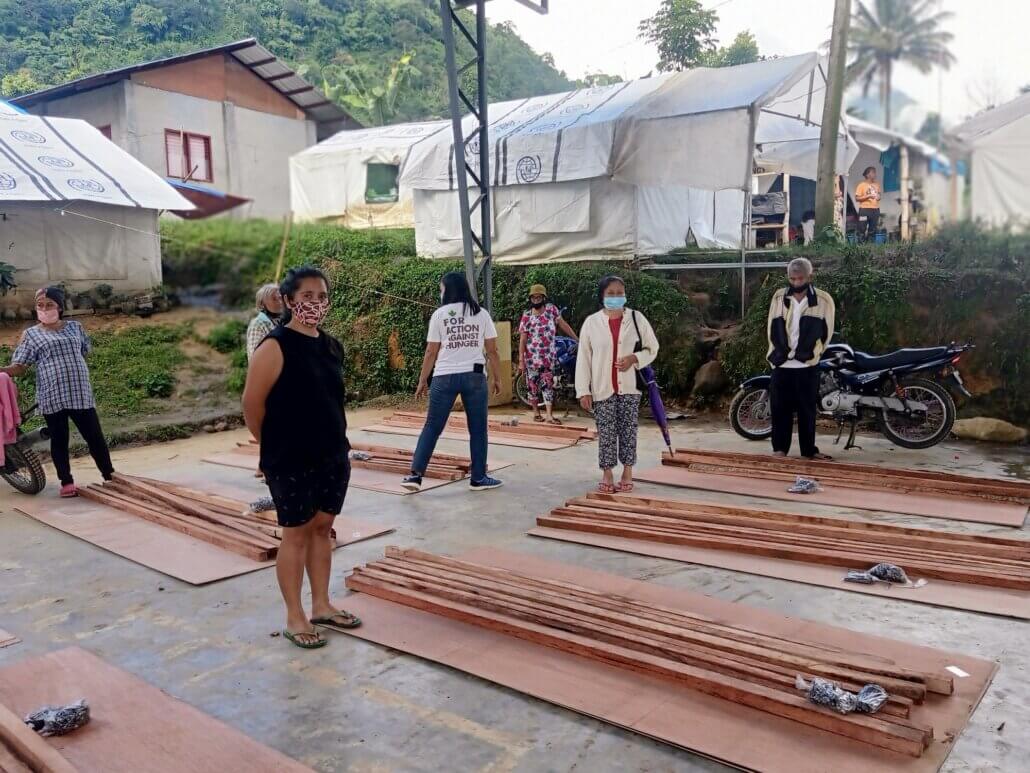
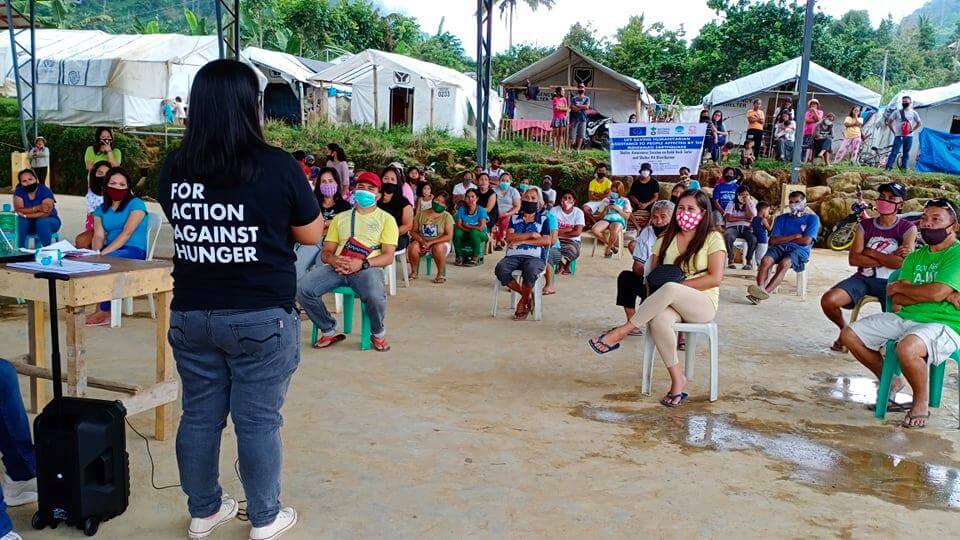
Undernourished people, especially young children, who contract COVID-19 could be at greater risk. While elderly people are deemed most at risk of COVID-19, the virus attacks the lungs, which is especially alarming for undernourished children whose risk of mortality increases 15-fold if they develop pneumonia.
To counter this, we need to support health facilities in their fight against the pandemic. In addition to this, we are working hard in maintaining the continuity of our maternal and child health programs.
You can help us strengthen and expand our activities focused on child malnutrition, support for women and psychosocial support.
𝗗𝗢𝗡𝗔𝗧𝗘 𝗡𝗢𝗪:
https://actionagainsthunger.ph/call-for-donations/
Part of our initiatives in preventing the spread of the coronavirus is by strengthening our risk communication and community engagement efforts which have reached more than 200,000 people.
Wherever we work, we motivate families and communities to uphold proper hygiene and sanitation practices through our hygiene promotion sessions, allowing them to understand the value of hygiene in fighting infectious diseases, as well as hunger and malnutrition.
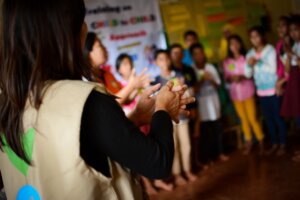
𝗬𝗼𝘂 𝘁𝗼𝗼 𝗰𝗮𝗻 𝘁𝗮𝗸𝗲 𝗽𝗮𝗿𝘁 𝗶𝗻 𝗼𝘂𝗿 𝗮𝗱𝘃𝗼𝗰𝗮𝗰𝘆 𝗯𝘆 𝗱𝗼𝗻𝗮𝘁𝗶𝗻𝗴: https://actionagainsthunger.ph/call-for-donations/
Written by Joayra Gem Balagtas for Action Against Hunger
82-year old Pedro Sanchez has been living alone in the evacuation site in Perez, Kidapawan ever since the Mindanao earthquakes last year. All three of his children now have families of their own. They would sometimes send him financial help, but it is usually not enough to support Pedro since their families have needs as well.
More than a year ago, Pedro was diagnosed with diabetes and suffered a stroke, and he hasn’t been able to walk ever since. He can hardly hear as well, which he says could probably be because of his old age.
Pedro relies on his good neighbors for assistance in taking care of himself. Whenever he has money, he asks his neighbors to buy him supplies and food. They also volunteer to do his laundry and other chores that he has trouble doing by himself. However, there are days where his neighbors aren’t around to help him, so no matter how challenging, he does these tasks on his own.
Last September 21, our 𝗘𝗮𝗿𝘁𝗵𝗾𝘂𝗮𝗸𝗲 𝗘𝗺𝗲𝗿𝗴𝗲𝗻𝗰𝘆 𝗥𝗲𝘀𝗽𝗼𝗻𝘀𝗲 𝗧𝗲𝗮𝗺 provided Pedro a wheelchair, to help him go through his daily activities with more ease. Teary-eyed, Pedro expressed his gratitude as he saw the wheelchair being pulled towards his tent.
Pedro is one of the 200 target beneficiaries to receive health and protection assistance as part of our 𝗹𝗶𝗳𝗲-𝘀𝗮𝘃𝗶𝗻𝗴 𝗵𝘂𝗺𝗮𝗻𝗶𝘁𝗮𝗿𝗶𝗮𝗻 𝗮𝘀𝘀𝗶𝘀𝘁𝗮𝗻𝗰𝗲 𝘁𝗼 𝘁𝗵𝗲 𝗽𝗲𝗼𝗽𝗹𝗲 𝗮𝗳𝗳𝗲𝗰𝘁𝗲𝗱 𝗯𝘆 𝘁𝗵𝗲 #𝗠𝗶𝗻𝗱𝗮𝗻𝗮𝗼𝗘𝗮𝗿𝘁𝗵𝗾𝘂𝗮𝗸𝗲 which is funded by the EU Civil Protection & Humanitarian Aid – ECHO.
To find out more on our Emergency Responses in the Philippines, go to:
https://actionagainsthunger.ph/what-we-do/…
The COVID-19 pandemic has affected all of us, some more so than others.
The unemployment rate of 17.7% for April 2020 is the highest ever recorded. As of September 24, we have reached 454,125 Filipinos with our projects, providing families with essential goods and services. But, In the face of this unprecedented crisis, we need to act fast and do more to help those who need it the most. 𝗪𝗲 𝗻𝗲𝗲𝗱 𝘆𝗼𝘂𝗿 𝗵𝗲𝗹𝗽.
𝗗𝗢𝗡𝗔𝗧𝗘 𝗡𝗢𝗪.
https://actionagainsthunger.ph/call-for-donations/
“How I can help maintain the health of my child?” asked one of the fathers at Rorogagus East Transitory Site in Marawi City yesterday during a Nutrition Sensitization Orientation conducted by our Iligan team.
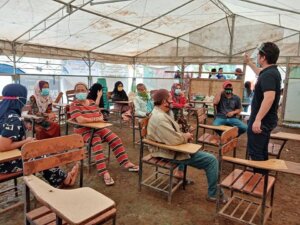
Both mothers and fathers actively participated in the discussions. Since the facilitator highlighted men’s contribution and influence in ensuring the proper health of their children, the fathers volunteered to practice taking MUAC measurements of children and pregnant & lactating women (PLWs).
Funded by Sida – Styrelsen för Internationellt Utvecklingssamarbete, the activity focused on detecting malnutrition through the use of Mid-Upper Arm Circumference (MUAC) tape. The attendees were enlightened of the fact that through this simple assessment, a child can be saved from the negative consequences of malnutrition through early detection.
𝗥𝗲𝗮𝗱 𝗺𝗼𝗿𝗲 𝗮𝗯𝗼𝘂𝘁 𝗼𝘂𝗿 𝗽𝗿𝗼𝗴𝗿𝗮𝗺𝘀 𝗼𝗻 𝗻𝘂𝘁𝗿𝗶𝘁𝗶𝗼𝗻 & 𝗵𝗲𝗮𝗹𝘁𝗵:
https://actionagainsthunger.ph/what-we-do/…